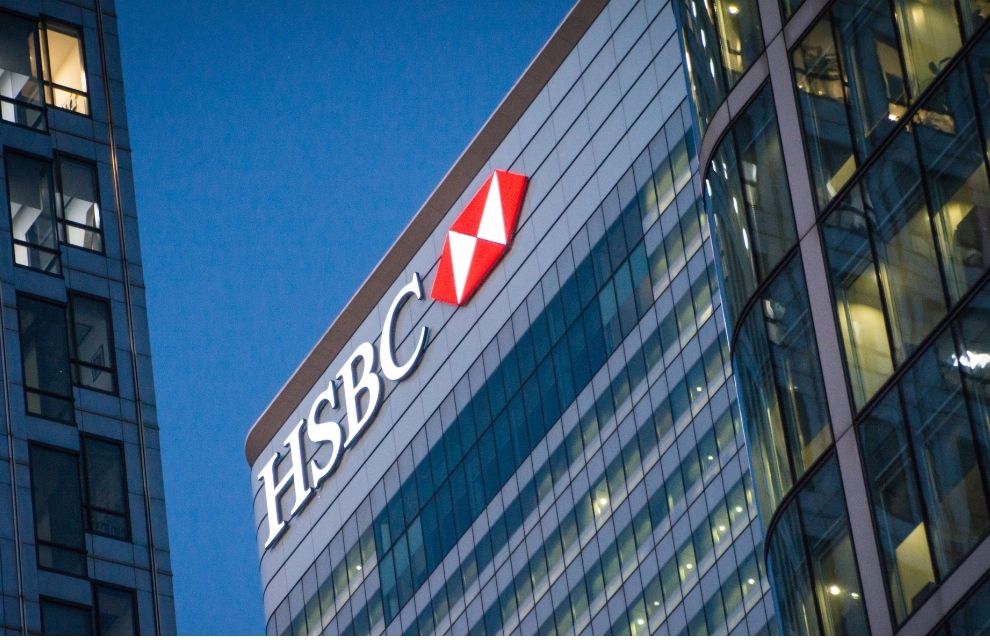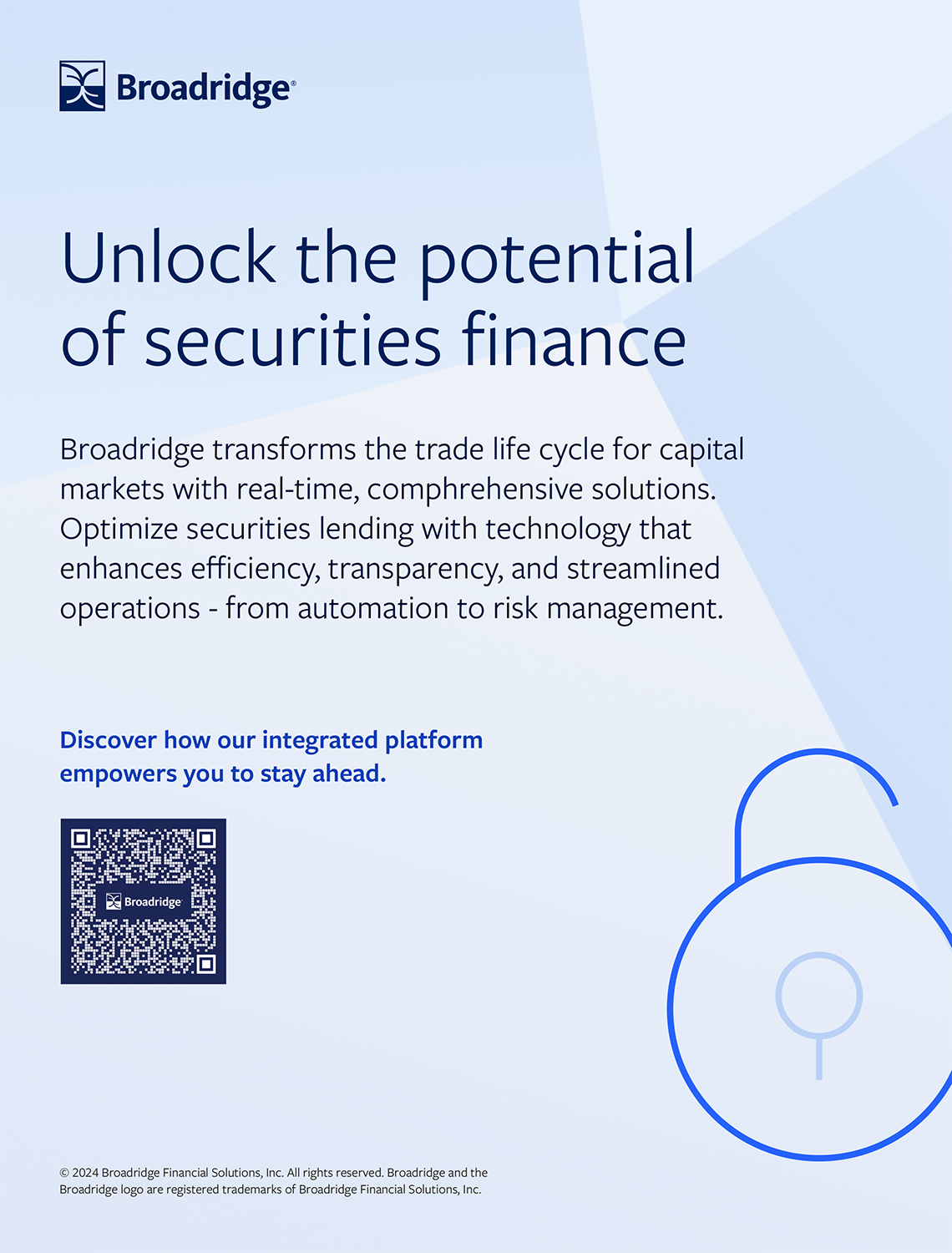HSBC solves TTF securities lending tax handicap with “market first” look through model
01 December 2020 UK
 Image: William/adobe.stock.com
Image: William/adobe.stock.com
HSBC has unveiled a “game-changing” new custody and fund administration technology and operating model for tax transparent funds (TTFs) that promises to galvanise the lending opportunities for fund operators such as life insurers, pension funds and asset managers.
Since their inception in 2013, UK TTF securities lending programmes were hamstrung by the inability to offer a fixed withholding tax rate on assets, thereby making them less attractive to brokers and borrowers, compared to those of other lenders.
Most traditional funds or lenders have a fixed withholding tax rate based on their entity type and where they are located.
The nature of a TTF means you apply multiple tax rates based on the underlying investors, which when a security is being lent out at the fund level results in a blended withholding tax rate representing the median of all relevant rates.
The new HSBC model seeks to level the playing field by enabling operators a “look through” to sort assets within a TTF at the share class level, meaning borrowers now have certainty on what tax rate the manufactured dividend will be set at.
Since 2015, HSBC’s Securities Services has been administering TTFs, with more than 60 sub-funds now under administration, of which the bank says only a limited number are active in lending due to the tax challenges.
Ed Turner, global head of insurance product in securities services at HSBC, tells SFT that the model will lead to increased utilisation by borrowers, thereby boosting revenue for lenders.
The new model is also expected to allow a greater variety of asset managers and owners to create a TTF as previously the operational efficiencies the fund type offered were nullified by the drop-off in securities lending revenue they also represented. This is predicted to cause a deepening of overall market liquidity pools once assets within TTFs gain parity with other lenders.
Creation of the new model was instigated by a UK-based client of HSBC seeking to establish a TTF without sacrificing lending revenue.
At present, the new model is only being applied to this initial client but will be offered to all TTFs going forward.
“This is potentially a game-changer for tax transparent fund operators,” says Turner. “By being a first mover in the market with this new model for securities lending, HSBC can help asset owners and asset managers achieve better returns on their investments via tax transparent funds.”
He adds: “TTFs have continued to grow in popularity largely due to the benefits they bring to asset owners and investors, including tax transparency, economies of scale from pooled investments, and their flexible structure that allows asset owners to unitise their portfolios.”
Since their inception in 2013, UK TTF securities lending programmes were hamstrung by the inability to offer a fixed withholding tax rate on assets, thereby making them less attractive to brokers and borrowers, compared to those of other lenders.
Most traditional funds or lenders have a fixed withholding tax rate based on their entity type and where they are located.
The nature of a TTF means you apply multiple tax rates based on the underlying investors, which when a security is being lent out at the fund level results in a blended withholding tax rate representing the median of all relevant rates.
The new HSBC model seeks to level the playing field by enabling operators a “look through” to sort assets within a TTF at the share class level, meaning borrowers now have certainty on what tax rate the manufactured dividend will be set at.
Since 2015, HSBC’s Securities Services has been administering TTFs, with more than 60 sub-funds now under administration, of which the bank says only a limited number are active in lending due to the tax challenges.
Ed Turner, global head of insurance product in securities services at HSBC, tells SFT that the model will lead to increased utilisation by borrowers, thereby boosting revenue for lenders.
The new model is also expected to allow a greater variety of asset managers and owners to create a TTF as previously the operational efficiencies the fund type offered were nullified by the drop-off in securities lending revenue they also represented. This is predicted to cause a deepening of overall market liquidity pools once assets within TTFs gain parity with other lenders.
Creation of the new model was instigated by a UK-based client of HSBC seeking to establish a TTF without sacrificing lending revenue.
At present, the new model is only being applied to this initial client but will be offered to all TTFs going forward.
“This is potentially a game-changer for tax transparent fund operators,” says Turner. “By being a first mover in the market with this new model for securities lending, HSBC can help asset owners and asset managers achieve better returns on their investments via tax transparent funds.”
He adds: “TTFs have continued to grow in popularity largely due to the benefits they bring to asset owners and investors, including tax transparency, economies of scale from pooled investments, and their flexible structure that allows asset owners to unitise their portfolios.”
NO FEE, NO RISK
100% ON RETURNS If you invest in only one securities finance news source this year, make sure it is your free subscription to Securities Finance Times
100% ON RETURNS If you invest in only one securities finance news source this year, make sure it is your free subscription to Securities Finance Times



